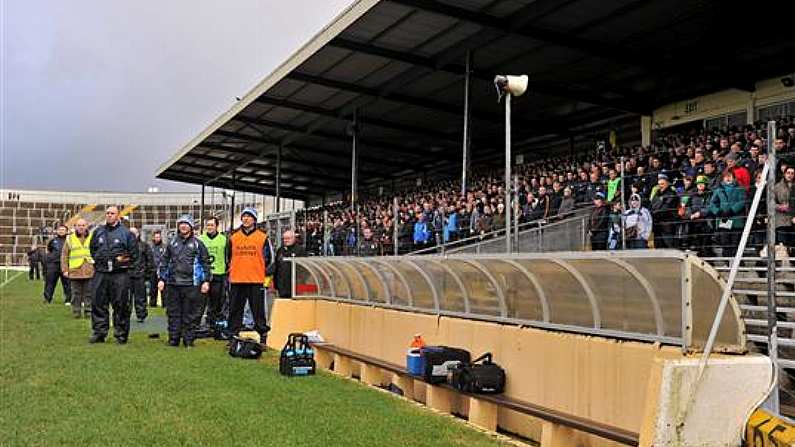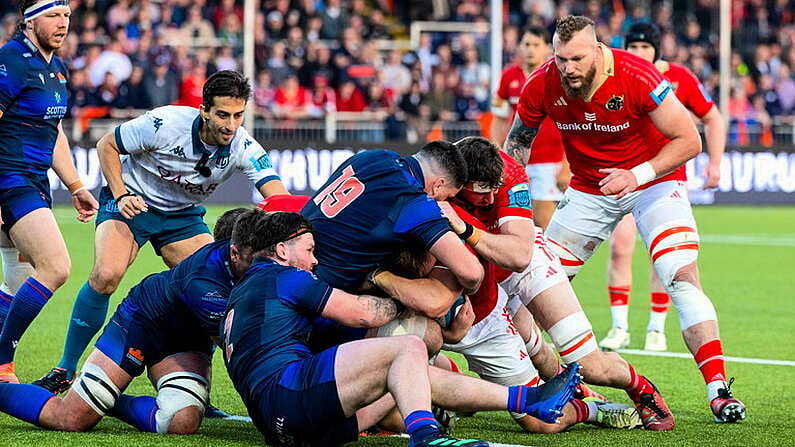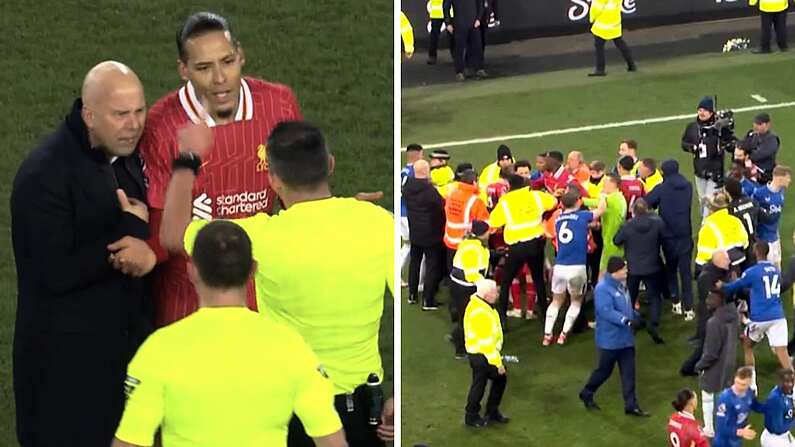'You haven't made it.'
And that was it. The words I had managed to dodge for so long had finally caught up with me. I won't deny that good fortune had protected me in the past, but now my blessings were out of stock. My lucky streak had betrayed me and the disappointing news that I always thought was destined for everyone else was suddenly being directed my way.
I remember the training session when I got the news. I was 18, in my second year of intercounty football and playing on a team that had realistic ambitions of contesting an All-Ireland. There was an inherent pressure there. There was pressure on the team to achieve and, of course, the players had expectations of playing their part on the pitch.
By the time championship football rolled around, I was just about shading a spot in the first 15. More accurately put, I was a fringe player with little or no space for fuck-ups.
I use to look on in envy at the players who were assured of a starting jersey. They could play expressive football while I was excessively analysing every move I made. I wouldn't say I was a bad player, but I would be a fair distance away from the core group of 'reliables' that every manager is grateful to have. Every team also needs players like me. We're the kind you don't have to depend on and are normally the ones who feature in the first batch of substitutions either as a replacement or the one who is being withdrawn.
In hindsight, I knew disappointment was on the cards. But then again it's always easy to talk about these things in retrospect. But at my head was tormented. I tried to bury the uncertainty, but seeking refuge in denial only served to multiply the unsettled feeling in my gut. It was as if my body was gravitating to the inevitable before my head was willing to even consider it.
It was our last session before a championship game so the training was light. But even though the drills weren't taxing, I never felt weaker. Our manager was a man who demanded high standards while still maintaining a friendly demeanor off the pitch. But as nice as he was, this was the one time you didn't want him to call you over for a chat.
His methods were probably the kindest way to crush a player's soul and although it wasn't intentional, he cut the image of a vulture that night, weaving through each group under the suspicious eyes of all the players fearing their number was up. In the end, I was the only one with justified worries.
The news came with an outstretched arm and a polite call. He led me a few paces away from the group and for a split second, I clung to the desperate hope that maybe he wanted to discuss a specific assignment he had for me. But somewhere in the recesses of my mind, I knew that wasn't the case.
I can't really remember what came after 'I'm sorry, it was a close call but....' I just zoned out to the only reality that mattered. The jersey was no longer mine and all I was left with were the inches I didn't cover. My coach tried to comfort me with the generic stuff. 'Head up,' 'you don't know when you might be needed' and so on. But it was just too difficult to keep my focus when I felt so removed from the team.
Situations like this tell you everything you need to know about the character of a person. Those who shrug their shoulders are the kind who know there's more to life than football. Those who storm off in frustration are shunned for being selfish and those who've heard these words a few times already will desperately try to negotiate their way back on to the team to avoid the truth that their time is almost up.
Everyone on the team is a gambler. The players put their talents on display for assessment and if they're blessed they'll win big. Managers have to hedge their bets as well. When they get it right, they're lauded for their genius. When they lose they're lampooned for their naivety. It's an endless cycle of uncertainty. But that is exactly the kind of sordid addiction that keeps us coming back year after year.
And now I was forced to confront the hardship of the failed wager. I thought I could sideline the misery until I got home but under the weight of my disappointment, I felt the tears pierce through. No-one wants to be a substitute, there's no point dressing it up any other way. If you're going to sit on the peripheries and cheer the team on, you may as well be a spectator. And while the manager might want you to keep your focus in the event that you're needed during the game, it's a difficult promise to keep when you feel so alienated.
The reality of my new role hit home on the day of the match. Instead of trotting to my normal position among the backs, I had to veer to the right where the cold and dark surroundings of the dugout awaited me. While the other players cheered the team on, I sat back. And like an animal stalking prey, I looked on to spot the players who were making mistakes and waited to see if I could make a kill.
The game came and went and as luck would have it, I was sent on in the first half. But as I sprinted onto the pitch all I could of was -'now what?' I spent so much time obsessing about coming on that I didn't spare a second to consider what the next move should be. Maybe I just wanted the validation of a starting jersey without the responsibility of actually doing what you're supposed to do on the pitch.
I don't remember too much of my own performance which would lead me to believe that it wasn't a scintillating one. But I'll always remember that game and what it taught me about myself. The success of the team is determined by margins. And they're the same margins that cost me my place on the team. The player's own personal agenda should never the priority. The whole is always greater than the sum of the parts.
But try telling that to someone who has to hear 'You haven't made it.'













